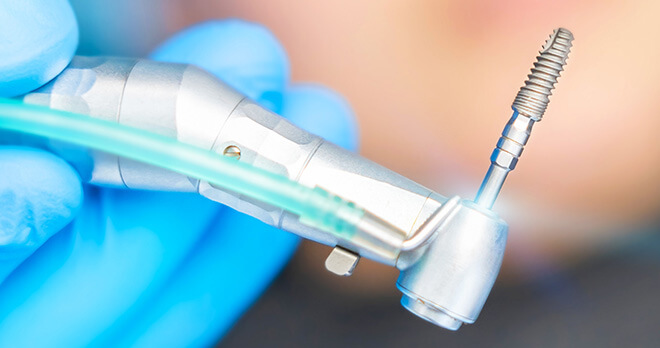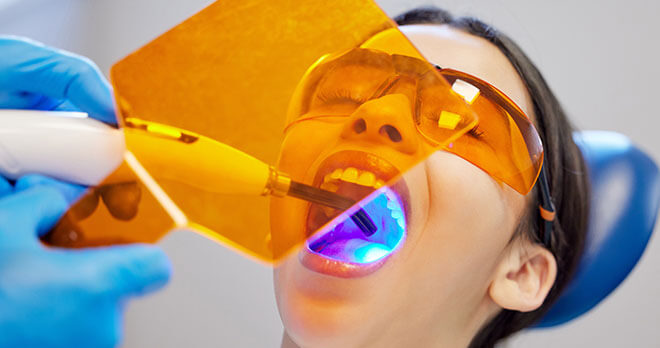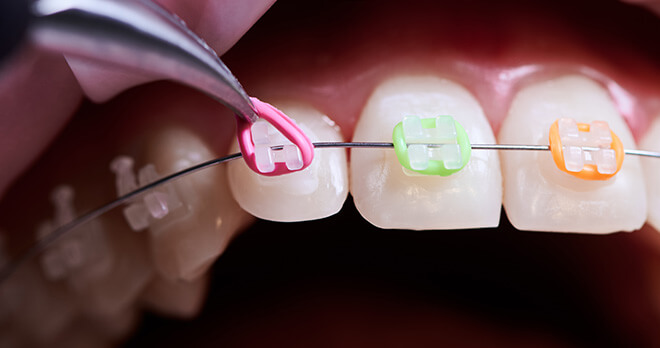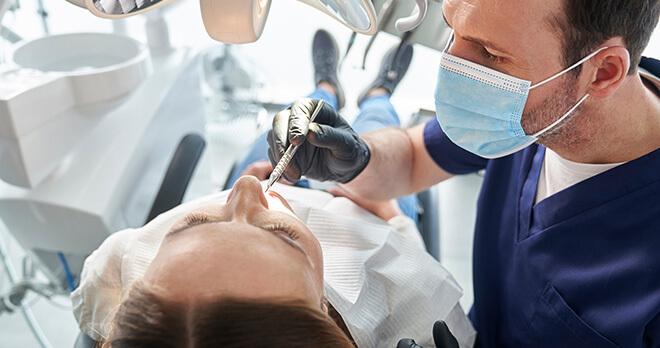The coronectomy procedure – preserve the nerve
The extraction of wisdom teeth has long been a daunting prospect, particularly when the lower third molar is in close proximity with the inferior alveolar nerve resulting in an increased risk of iatrogenic injury during extraction.
Why preserve the nerve?
The inferior alveolar nerve provides sensation to the lower lip, skin on the chin and jaw, the surrounding teeth and the gum tissue surrounding the teeth. Iatrogenic damage caused when extracting a wisdom tooth can alter the sensations to these areas and cause paraesthesia in the form of pins and needles or numbness alone; this can be temporary or permanent.
Prior to extracting a wisdom tooth, it is therefore vital that the dental practitioner carries out a radiographic examination to determine whether the roots of the third molar are in close proximity with the nerve. If damage appears likely, it is then a decision for the dental practitioner and the patient what treatment should be recommended and undertaken. In many cases, the patient is referred to an Oral surgeon for further consultation.
What is a coronectomy?
A relatively new concept is for the dental practitioner or oral surgeon to carry out a coronectomy.
A coronectomy procedure involves removal of the crown of the wisdom tooth only and the roots are left in situ. The crown of the tooth is normally responsible for future problems and pain and it is uncommon for the roots to pose a health risk. Thus, a coronectomy avoids the need to extract and reduces the chances of damage being caused to the nerve which, in turn, reduces the chances of the patient experiencing paraesthesia symptoms.
Coronectomy vs Extraction
A number of studies have been published which advocate dental practitioners to use this method of resolving problematic lower third molars and reducing the risk of causing damage [1]. However, being a fairly new technique in the realm of dentistry, there are a number of practitioners concerned about leaving a large section of root in the mandible. [2]
I haven’t found reports of adverse incidents as a result of a coronectomy other than typical infection and slight, temporary sensation change; however, concerns remain because the technique remains relatively new and therefore, has not been subject to testing on a large and prolonged scale.
Of course, any procedure, including a traditional extraction method, carries a risk of infection and, just as with a coronectomy, a risk of the patient developing a dry socket infection. Traditional treatment for infections has proven to be equally as successful after a coronectomy.
In contrast, we have a number of Clients who have suffered temporary and permanent symptoms of altered sensation in their lips, jaw, mouth, teeth and gums as a result of damage sustained to the inferior alveolar nerve after the extraction of a lower wisdom tooth.
If you are experiencing symptoms following an extraction, I would advise that you seek the opinion of a dental practitioner.
If you have experienced symptoms as a result of an extraction and you consider that your dental practitioner has failed to recommend alternative treatment options, failed to refer you to an oral surgeon and/or failed to assess your tooth roots radiographically, feel free to contact a member of the Dental Negligence Team for legal advice.
[1]T Renton “Notes on Coronectomy” 2013; V Patel, S Moore, C Sproat, “Coronectomy – Oral surgery’s answer to modern day conservative dentistry” 2010.
[2] V Patel, C Sproat, J Kwok, K Beneng, S Thavaraj, M McGurk, “Histological evaluation of mandibular third molar roots retrieved after coronectomy” May 2014.
Got a question?
You can call the team on 0800 923 2080 or message them to understand more about you potential compensation claim for dental negligence. We will get back to you at a time that is convenient to you.
Common claim types
Insights and opinions
View more articles related to Cosmetic dentistry, Crowns and bridges, Dental implants, Dental nerve damage, Extractions, Gum disease, Information, Mouth cancer, Orthodontics, Root canal treatment, Tooth decay and Wisdom teeth










